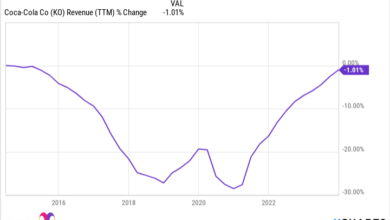‘We are on a mission to achieve provider status for our pharmacists’

Walgreens Boots Alliance (WBA) CEO Tim Wentworth is changing the way the retail pharmacy chain operates in a bid to become a more clinically oriented brand — though without the clinics.
“We like where we are now, but we’re not going to get to where we need to simply by being a place that can hire lots of pharmacists. It is about work redesign, it is about taking the lower-value work off the table,” he told Yahoo Finance on Thursday.
The longtime healthcare executive is signaling a seismic shift in how the company operates, with an eye toward fewer verticals within the business. Wentworth, former CEO of pharmacy benefits manager Express Scripts, which was acquired by Cigna (CI) in 2018, previously announced 60 VillageMD closures. The co-located clinics and pharmacies were the result of a $5 billion Walgreens partnership in 2020 prior to Wentworth’s arrival last year, and were part of a broader strategy to be more health services focused — similar to rival CVS’s (CVS) Minute Clinic.
The clinics caused a nearly $6 billion drop in the company’s second quarter revenue compared to the prior year, the company announced on Thursday. Still, Walgreens managed to beat earnings expectations, reporting earnings per share of $1.20 compared to analyst expectations of $0.82. The company’s stock was up nearly 4% in trading Thursday.
Pharmacist roles
In its post-results earnings call, Wentworth noted that the National Health Service, the UK’s health agency, recently began allowing pharmacists to diagnose and prescribe medication for seven common health conditions, including shingles, UTIs, and sore throats. Boots locations in the UK are part of this new program, which gives Wentworth access to firsthand data on how it works and how it could be replicated in the US.
“We are on a mission to achieve provider status for our pharmacists, given their influence, which was so clearly highlighted during the pandemic. This would allow them to get reimbursed for providing select services to patients,” Wentworth said on the call regarding the US labor force.
“These are highly trained clinical professionals … whose scope of practice goes well beyond dispensing medications,” he added.
How the company can achieve this goal amid a nationwide shortage of pharmacists, as well as ongoing headwinds in the consumer space, is the challenge Wentworth faces.
US pharmacists, which are licensed by states, have varying degrees of medical authority depending on the state they practice in. Walgreens is in the midst of lobbying Congress to pass a bill with language that would allow Medicare Part B reimbursement for pharmacists providing tests, vaccines and treatments— but would not step on state laws, a spokesperson for Walgreens clarified after the interview Thursday.
Wentworth acknowledged the company has faced the same problems as other pharmacies in the past few years — including having to close down more than 100 locations and pausing the buildout of smaller locations in order to better manage resources.
Since taking the helm, Wentworth says he has been focusing on a return to the basics. That means facing old problems — such as weak demand for front-of-store consumer items as more customers look to e-commerce and bulk buying amid inflationary pressure.
To that end, he recently announced internally that store managers will have more control over their stores and be incentivized to drive growth. In addition, creating a more community-based pharmacy setting — customizing the store based on the location rather than the current big box feel — on the front retail paired with the back end with “pharmacists operating at the very top of their clinical ability” is how Walgreens can survive the downward pressure it has faced in recent years, Wentworth said.
“That’s the way we’re able to grow our underlying clinical side of our business while at the same time building trust with patients,” he said.
Anjalee Khemlani is the senior health reporter at Yahoo Finance, covering all things pharma, insurance, care services, digital health, PBMs, and health policy and politics. Follow Anjalee on all social media platforms @AnjKhem.
Read the latest financial and business news from Yahoo Finance




